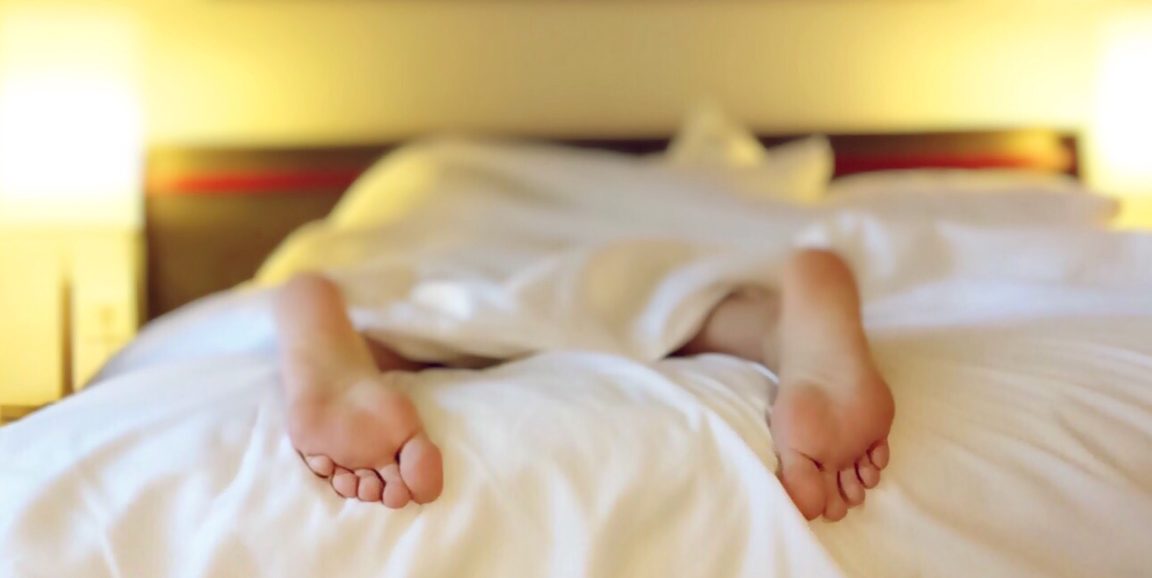I have found that sleep and the medical profession have an uneasy relationship.
Physicians, of course, recommend that patients get at least seven hours of sleep each night. But despite dispensing that advice to others, I don't think I personally know a single doctor who actually sleeps that much, given the demands of providing care, documentation, making time for their loved ones and ruminating on illnesses and treatments for patients who occupy their minds even outside of the hospital.
In fact, some physicians even pride themselves on how little they sleep they need. One told me that he can function with only four hours of sleep each night. A resident from neurosurgery told me that he eventually got used to sleep deprivation, that the human body can handle anything.
This has not been my experience. When I get less than five hours of sleep, I can feel my brain and my body slowing down. I try to make up for this deficit with extra caffeine, but the jittery awakeness is a poor substitute for my usual calm alertness.
During college and the first two years of medical school, I avoided all-nighters by efficiently managing my time. However, the clinical demands -- and educational opportunities -- of my later years of medical school have led me to forego sleep for work more often than in the past. For example, during my rotation at the Santa Clara Valley Medical Center, I completed a five-day night float for a week -- still working 12-hour shifts, but asking my body to completely flip its rhythm to the night shift and then flip it back for the remainder of the rotation. Because I would be fighting traffic to get back to a dorm adjacent to an active construction site, I calculated that I would be able to get six hours of poor sleep back in my room. My solution? I packed my duffle bag with clothes, an over-the-counter bottle of melatonin, towels and toiletries, and slept in the windowless, almost sound-proof, hermetically-sealed call room at the hospital.
As well as I slept in that call room, I have noticed that the hospital, despite being a space of healing, can be a poor place for patients to experience uninterrupted rest -- not just because they feel unwell, but also because of necessary parts of their care, such as scheduled blood draws, medication administrations and checkups. As a medical student, during some of my rotations, I've reluctantly contributed to this problem: it has sometimes been my responsibility to talk to and examine a patient in the early morning to help me devise and present a care plan for the entire team. This "pre-rounding" presents an important opportunity for me to develop the skills I need to become a competent doctor. However, pre-rounding also has meant that I've disturbed patients' sleep for my education and contribution to their patient plans.
I understand -- from personal experience -- how disruptive it can be for a patient's rest to be interrupted at the hospital. During college, I snapped my radius and ulna after tumbling down a New England ski pass. After the surgery, my bruised and aching body wanted nothing more than to sleep; but a parade of surgeons, nurses, pharmacists and billing specialists came in and out of my room throughout the day and night. I knew they needed to see me -- and I needed to see them -- but my body ached for rest. After I was discharged, I slept for 20 hours straight.
With this memory in mind, I always did my best to make my pre-rounding interviews as efficient as possible by going over my questions before knocking on the door. I also made sure to thank the patient during all of my visits to express my appreciation and to acknowledge their role in my growth as a physician.
With graduation looming next spring, I find myself thinking a lot about sleep, and how little I will get as a brand-new intern. I would love to see someone design a more efficient system; ideally, it would allow providers to give necessary care and trainees to get the experience they need, while also permitting them sufficient rest and limiting disruption to patients' sleep schedules.
Stanford Medicine Unplugged is a forum for students to chronicle their experiences in medical school. The student-penned entries appear on Scope once a week during the academic year; the entire blog series can be found in the Stanford Medicine Unplugged category.
Yoo Jung Kim is a fourth-year Stanford medical student and the co-author of "What Every Science Student Should Know," a guidebook for aspiring college STEM students. Her pieces on medicine and society have appeared in The Washington Post, the Seattle Times, The Mercury News, The Korea Times, and Nature.
Photo by Wokandpix






